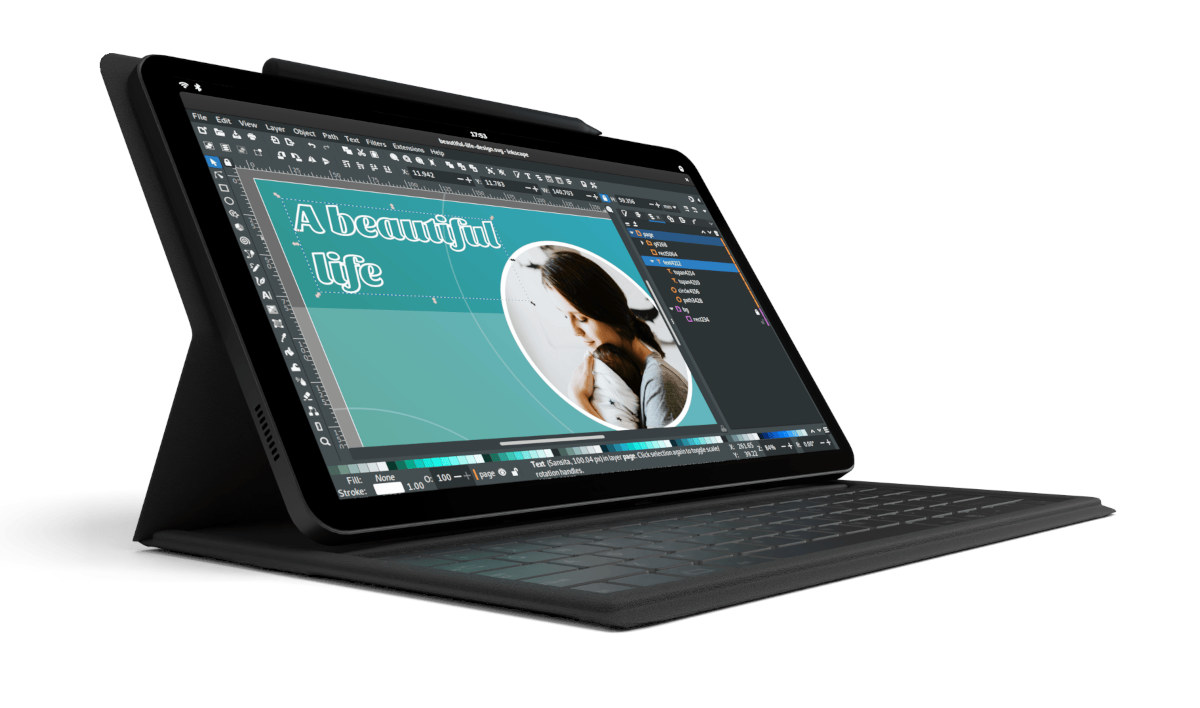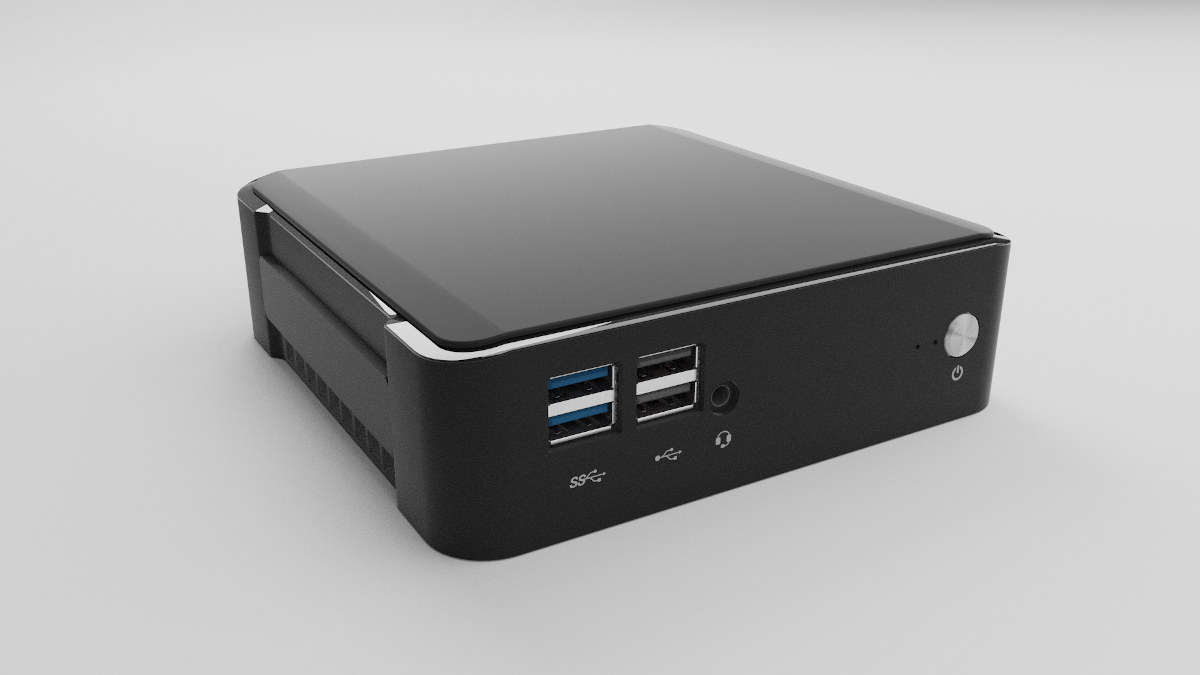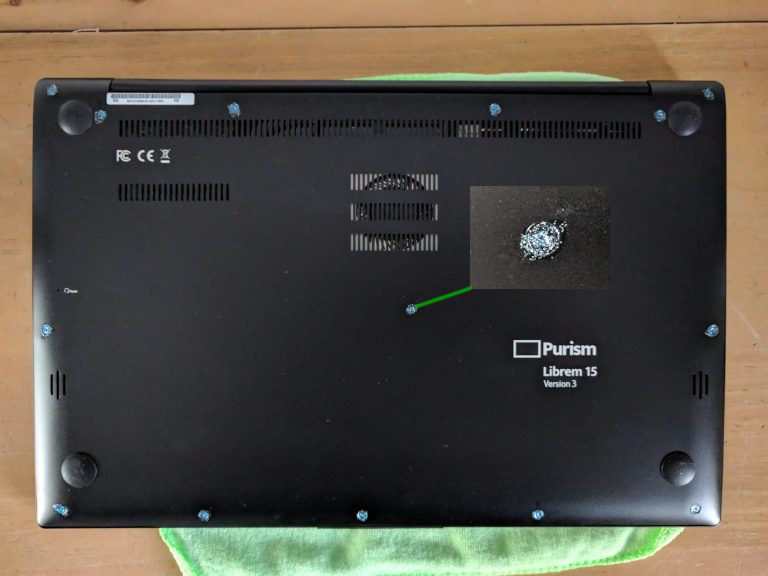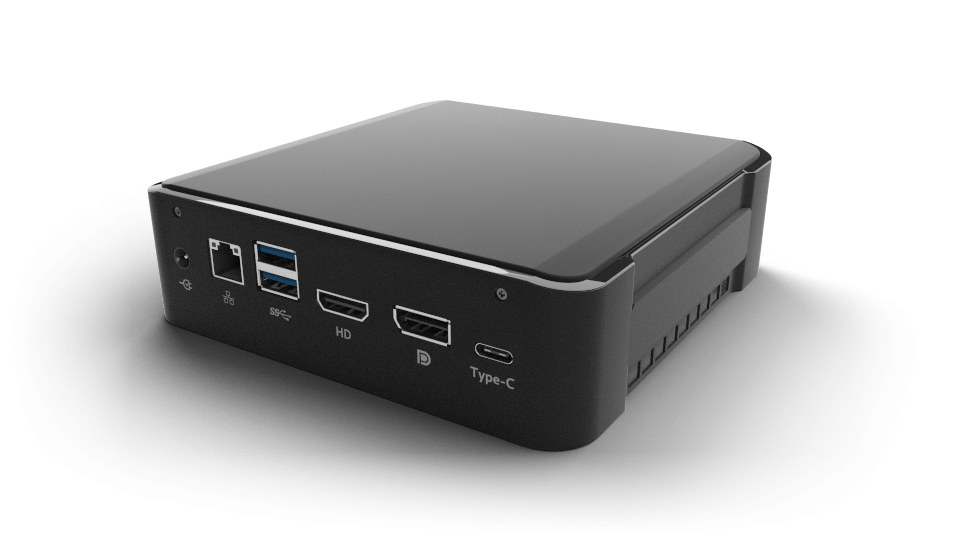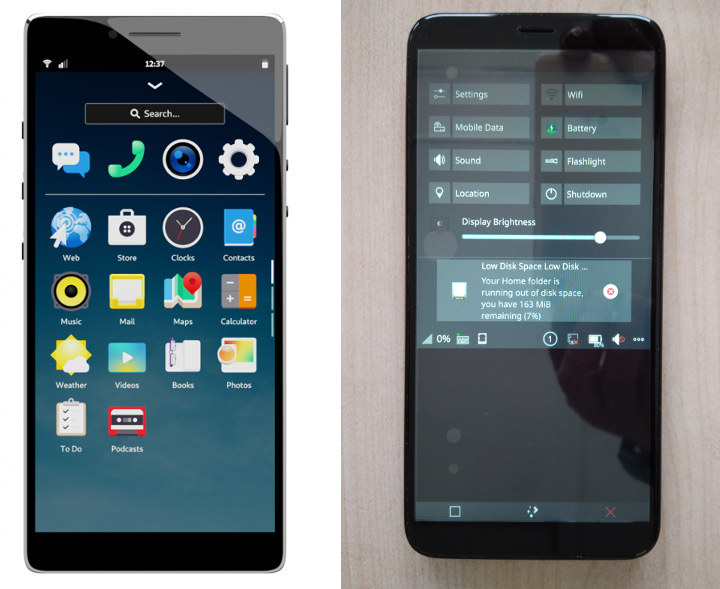Purism Librem 11 is an 11.5-inch Linux tablet running the secure PureBoot bootloader and PureOS Linux distribution with a focus on privacy and respect for personal freedom. The tablet comes with what looks to be a decent 11.5-inch AMOLED touchscreen display with a 2560×1600 resolution, 8GB RAM, and a 1TB NVMe SSD, but the Intel Celeron N5100 quad-core Jasper Lake processor would be considered entry-level in 2023. The tablet also comes with a keyboard and stylus making a 2-in1 hybrid device. Purism Librem 11 specifications: SoC – Intel Celeron N5100 quad-core Jasper Lake processor @ 1.1GHz/2.89GHz (Turbo) with Intel UHD Graphics System Memory – 8 GB LPDDR4 (soldered) Storage 1 TB NVMe SSD (Kingston KC3000) microSD card reader implemented with Genesys Logic GL823K Display – 11.5-inch AMOLED display with 2560×1600 resolution, 60Hz refresh rate, Goodix GXTP7380 multitouch digitizer, stylus support Stylus – 2x buttons, 4096 pressure levels, tilt support (XY), […]
Purism Lapdock kit converts the Librem 5 Linux smartphone into a laptop
Purism has just announced the Lapdock kit to turn their Librem 5 Linux smartphone into a laptop with a 13.3-inch touchscreen display thanks to the NexDock 360 laptop dock. I was a big believer in mobile desktop convergence around 10 years ago, expected to be soon able to use my phone as a computer or laptop with a dock, and it looked like it might have become a reality when Canonical launched the Ubuntu Edge smartphone crowdfunding campaign in 2013. But it turns out demand was not sufficient, and Canonical eventually ended their convergence efforts focusing on profitable IoT and cloud segments instead. But that does not mean there isn’t a niche market and Purism’s Lapdock kit addresses it to some extent. The Lapdock kit is comprised of three parts namely the NexDock 360 laptop dock, a magnetic mount to attach the Librem 5 to the side of the NexDock […]
Capyloon mobile Web-based OS works on Pinephone Pro, Librem 5, Pixel 3a
Capyloon is an experimental Web-based OS leveraging b2gOS that served as the base for the now-defunct Firefox OS. The developers’ goal is to provide an open-source OS improving privacy and user control through web technologies. It’s still early stage, and some of the technologies used include the IPFS protocol, WebAssembly plugins, and the Tor network. Capyloon is more like a new phone shell as it replaces Phosh when installing it in a Linux smartphone. The first version of Capyloon released last month worked on Pixel 3a, other Android phones through a generic system image, and 64-bit x86 Debian machines. But since then, the developers added support for Apple M1, and yesterday they released Debian packages for PinePhone Pro and Librem 5 Linux smartphones to run Capyloon on top of a Mobian image. Instructions are as follows: Download the Debian package for PinePhone Pro or Librem 5 Install the package withsudo […]
Librem Mini v2 Linux Mini PC features Intel Core i7-10510U Comet Lake Processor
Purism launches their first Linux mini PC with Librem Mini powered by an Intel Core i7-8565U Whiskey Lake processor earlier this year, and now the company has unveiled an updated model with the same features, except that Librem Mini v2 mini PC features a slightly more powerful 10th generation Intel Core i7-10510U Comet Lake processor for the same $699 price tag. Librem Mini v2 specifications: SoC – Intel Core i7-10510U quad-core/octa-thread Comet Lake processor @ 1.8 GHz / 4.9 GHz (Turbo) with 8MB cache, Intel UHD Graphics 620; 15W TDP System Memory – 2x SO-DIMM slot for up to 64GB DDR4-2400 RAM Storage – 1x SATA III 6Gbps SSD/HDD (7mm thickness), 1x M.2 SSD (SATA III/NVMe x4) Video Output – 1x HDMI 2.0 up to 4K @ 60Hz, 1x DisplayPort 1.2 up to 4K @ 60Hz Audio – 3.5mm audio jack (Mic & Headphone), digital audio via HDMI Connectivity Gigabit […]
We live in a Sad World – Purism Anti-Interdiction Services are (Somewhat) Popular
A few years ago, we learned the NSA may intercept networking gear during shipping in order to modify it to provide backdoor access to the hardware, and it’s likely other national security agencies around the world also modify hardware on transit for spying purposes. I’d think most people would not really care, and only high-profile business and governmental targets may take preventive measures, but according to a recent post from Purism, their Anti-interdiction services are fairly popular among their customers. Wait… What? What is “anti-interdiction”. The only definition I know of is: “the action of prohibiting or forbidding something”. But it turns out there’s another definition that applies here: the action of intercepting and preventing the movement of a prohibited commodity or person. Purism laptops are not exactly prohibited, but you get the point, and the anti-interdiction services are meant, not to prevent, but detect interdiction of laptops or other […]
Purism Librem Mini Linux Mini PC is Powered by an Intel Core i7-8565U Whiskey Lake Processor
Purism has been known for its Linux-based secure and privacy-focused laptops for years, and more recently they developed Librem 5 Linux smartphone with the same philosophy in mind. But now the company has introduced Librem Mini based on an Intel Core i7 Whiskey Lake processor with up to 64GB DDR4 RAM and running PureOS Linux distribution, and Coreboot based PureBoot bootloader that disables and neutralizes Intel Management Engine (IME). Librem Mini specifications: SoC – Intel Core i7-8565U quad-core/octa-thread Whiskey Lake processor @ 1.8 GHz / 4.6GHz (Turbo) with Intel UHD Graphics 620; 15W TDP System Memory – 2x SO-DIMM slot for up to 64GB DDR4-2400 RAM Storage – 1x SATA III 6Gbps SSD/HDD (7mm thickness), 1x M.2 SSD (SATA III/NVMe x4) Video Output – 1x HDMI 2.0 up to 4K @ 60Hz, 1x DisplayPort 1.2 up to 4K @ 60Hz Audio – 3.5mm audio jack (Mic & Headphone), digital audio […]
Linux 5.3 Release – Main Changes, Arm, MIPS & RISC-V Architectures
Linus Torvalds has just announced the release of Linux 5.3: So we’ve had a fairly quiet last week, but I think it was good that we ended up having that extra week and the final rc8. Even if the reason for that extra week was my travel schedule rather than any pending issues, we ended up having a few good fixes come in, including some for some bad btrfs behavior. Yeah, there’s some unnecessary noise in there too (like the speling fixes), but we also had several last-minute reverts for things that caused issues. One _particularly_ last-minute revert is the top-most commit (ignoring the version change itself) done just before the release, and while it’s very annoying, it’s perhaps also instructive. What’s instructive about it is that I reverted a commit that wasn’t actually buggy. In fact, it was doing exactly what it set out to do, and did it […]
Librem 5 & Pinephone Linux Smartphones to Launch This Fall
There are too highly anticipated Linux smartphones currently in development namely Purism Librem 5 and Pine64 Pinephone. The first one, based on NXP i.MX 8M processor is fairly pricey ($699) partly because of better specifications, but mostly because the company handles software development internally, while Allwinner A64 Pinephone has somewhat lower specifications, but a much lower $150 price tag as software development is done by the community. Neither phones are available, and until a few days ago there were no clear launch dates. This has now changed as Purism announced Librem 5 would start shipping on September 24, while Pinephone first batch is scheduled for mid-October, which should also be the date for the launch of pre-orders, and shipment will start in November. This sounds great, but be warned the first phones will be for enthusiasts who do not mind having a few defects and missing hardware/software features, and the […]


